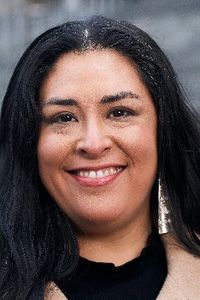Colleen Echohawk
Colleen Echohawk ran for election for Mayor of Seattle in Washington. She lost in the primary on August 3, 2021.
Elections
2021
See also: Mayoral election in Seattle, Washington (2021)
General election
General election for Mayor of Seattle
Bruce Harrell defeated M. Lorena Gonzalez in the general election for Mayor of Seattle on November 2, 2021.
Candidate | % | Votes | ||
| ✔ |  | Bruce Harrell (Nonpartisan) | 58.6 | 155,294 |
 | M. Lorena Gonzalez (Nonpartisan) | 41.2 | 109,132 | |
| Other/Write-in votes | 0.3 | 777 | ||
| Total votes: 265,203 | ||||
 = candidate completed the Ballotpedia Candidate Connection survey. = candidate completed the Ballotpedia Candidate Connection survey. | ||||
| If you are a candidate and would like to tell readers and voters more about why they should vote for you, complete the Ballotpedia Candidate Connection Survey. | ||||
Do you want a spreadsheet of this type of data? Contact our sales team. | ||||
Nonpartisan primary election
Nonpartisan primary for Mayor of Seattle
The following candidates ran in the primary for Mayor of Seattle on August 3, 2021.
Candidate | % | Votes | ||
| ✔ |  | Bruce Harrell (Nonpartisan) | 34.0 | 69,612 |
| ✔ |  | M. Lorena Gonzalez (Nonpartisan) | 32.1 | 65,750 |
 | Colleen Echohawk (Nonpartisan) | 10.3 | 21,042 | |
 | Jessyn Farrell (Nonpartisan) | 7.3 | 14,931 | |
| Arthur Langlie (Nonpartisan) | 5.6 | 11,372 | ||
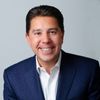 | Casey Sixkiller (Nonpartisan) | 3.4 | 6,918 | |
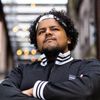 | Andrew Grant Houston (Nonpartisan) | 2.7 | 5,485 | |
| James Donaldson (Nonpartisan) | 1.6 | 3,219 | ||
| Lance Randall (Nonpartisan) | 1.4 | 2,804 | ||
 | Clinton Bliss (Nonpartisan)  | 0.8 | 1,618 | |
| Omari Tahir-Garrett (Nonpartisan) | 0.2 | 391 | ||
| Bobby Tucker (Nonpartisan) | 0.2 | 377 | ||
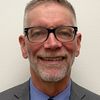 | Henry Dennison (Nonpartisan) | 0.2 | 347 | |
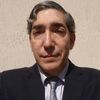 | Stan Lippmann (Nonpartisan) | 0.2 | 323 | |
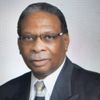 | Don Rivers (Nonpartisan) | 0.1 | 189 | |
| Other/Write-in votes | 0.2 | 386 | ||
| Total votes: 204,764 | ||||
 = candidate completed the Ballotpedia Candidate Connection survey. = candidate completed the Ballotpedia Candidate Connection survey. | ||||
| If you are a candidate and would like to tell readers and voters more about why they should vote for you, complete the Ballotpedia Candidate Connection Survey. | ||||
Do you want a spreadsheet of this type of data? Contact our sales team. | ||||
Campaign themes
2021
Ballotpedia survey responses
See also: Ballotpedia's Candidate Connection
Colleen Echohawk did not complete Ballotpedia's 2021 Candidate Connection survey.
Campaign website
Echohawk's campaign website stated the following themes.
| “ |
People First Platform My policies are reflective of the diverse population of Seattle and the experiences they have every single day. They were crafted in direct consultation from local leaders with lived experience in these topic areas. My years of community organizing have informed my approach so that you the people set the policy for this City, not special interests or corporate entities. Together we can bring equity to Seattle so that EVERY resident, whether they just moved here to pursue new opportunities or if they have lived here for decades, can reach their full potential Police Reform and Public Safety I have witnessed first hand both the good and bad of police interactions within the urban Native homeless population while leading the Chief Seattle Club for the past 7 years. I am also the only candidate with actual experience inside the Community Police Commission (CPC), giving me an unparalleled perspective into the failures of the current system right here in Seattle. As Mayor, your safety is my top priority. The only way to do this is by bringing everybody from all across our City together to ensure that all residents and visitors - particularly Black, Indigenous, People of Color and LGBTQ+ communities - feel safe, comfortable, and welcome in our City. ✔ Zero tolerance for bad cops ✔ New Chief, new contract, new culture ✔ Empower the Community Police Commissioner to be a true stakeholder in accountability ✔ Seattle Ceasefire to help individuals at the highest risk of serious violence ✔ Crisis Response Teams to respond to mental health related calls for service POLICE REFORM AND PUBLIC SAFETY Emergency Housing Action Plan Over half a decade ago a state of emergency was declared by politicians over our homelessness crisis. But instead of treating this humanitarian crisis like the emergency it is, we saw blame shifting, excuse making, and inaction from City Hall. This is why I am running for Mayor. Addressing homelessness is about results and accountability - not about optics. At Chief Seattle Club, I have seen firsthand how housing can change lives, developing 487 units of affordable housing totaling $186 million. Chief Seattle Club’s first housing project, Eagle Village, has had zero relatives enter homelessness again after being housed. I will bring that same dedication and commitment to City Hall. ✔ Rapid Emergency Housing Headquarters run out of the Executive Offices at City Hall ✔ Citywide call for a Volunteer Corps to help plan, implement, and assemble mutual aid ✔ Run a capital campaign to build 4,000 units of temporary housing ✔ Temporarily activate Seattle’s Emergency Operations Center to coordinate response ✔ Tiny homes, modular housing, safe lots, surplus City property, and hotels for emergency housing HOMELESSNESS CRISIS AND ACTION PLAN Housing Justice In 1865, the first Seattle City Council passed Ordinance #5 banning Native Americans from entering the City. This marked the beginning of a long legacy of racism and segregation in Seattle. Today, regressive zoning continues to impose de-facto redlining policies that exclude people of color from select Seattle neighborhoods. I will work with the City Council to repeal exclusionary zoning laws and allow for duplexes, triplexes, and fourplexes in every neighborhood. ✔ Repeal exclusionary zoning laws to allow “missing middle” housing in every neighborhood ✔ Expedite housing development by removing barriers in permitting and RFP processes ✔ Build generational ownership through long term land leases, land trusts, and a City land bank ✔ Protect tenants’ rights through rent abatement, eviction moratorium, and lease safeguards ✔ Holistic neighborhoods through workforce housing and transit-oriented communities Climate Justice Since 2006, the City of Seattle has had climate plans in place, but despite these plans greenhouse gas emissions keep going up. I envision a Seattle that is healthy for the people that live here and a Puget Sound where orca are thriving and salmon are abundant. We have an opportunity to dream a vision for strong and healthy communities with a new generation of leadership. An Echohawk Administration will establish climate justice and climate preparedness as cornerstones of how the City operates. Rooted in racial justice and Indigenous methodologies, I will work with communities most impacted by the effects of climate change to action solutions that benefit the many over the few. ✔ Office of Indigenous Affairs to value the wisdom of Indigenous peoples & Native tribes ✔ Expand Environmental Justice Fund to invest in BIPOC led environmental justice solutions ✔ Community solar programs ✔ Increase multimodal transportation infrastructure ✔ Green jobs to build stormwater / clean energy infrastructure and protect critical shoreline Transportation At Chief Seattle Club, free bus tickets are the second-most requested item from our homeless members (after meals), because transit is a lifeline. Everyone deserves to have safe and reliable transportation options to get to work, school, the grocery store, and other essential services. We all deserve to live in neighborhoods free from pollution, traffic, and preventable traffic deaths. I will make sure that Seattleites have abundant transportation options to get where they need to go and continue advocating for progressive funding so we can keep our communities moving. ✔ Connect sidewalks and bike networks while expanding walking and rolling connections ✔ Achieve Vision Zero goals to reach traffic related fatalities ✔ Reduce commute times to incentivize transit ✔ Ensure access to free or subsidized transit passes ✔ Expand very low-income fare program to cover people experiencing homelessness and with low incomes ✔ Transit-oriented communities ✔ Use an equity framework and People-First lens to identify greatest gaps Arts & Culture Let’s also be clear about how we talk about our return to gallery openings and theater premieres next year – don’t call it a comeback. Artists and cultural creatives have been here all year. They’ve been making new work and they’ve been exploring new ways of sharing that work. Artists have carried us through the darkest parts of this past year. The 1918 pandemic ended and set off the Jazz Age, the Roaring ‘20s. We could be on the brink of a golden era of artistic and cultural expression in Seattle, but we must ensure that our artists and our arts and cultural organizations have the support they need to be the engines of that revival. As mayor I will invest in artists and cultural activity, and in particular in BIPOC artists and previously underinvested and marginalized cultural communities, to lay the foundation for a more equitable and inclusive creative recovery. ✔ Make City resources available to the arts community, without requiring a direct connection to the City ✔ Redesign the 1% for Art program to bring benefit to artists, not buildings ✔ Support the creation of affordable artists housing opportunities ✔ One percent of all “One Percent” dollars will be mandated to go to Indigenous artists ✔ Leverage artists’ expertise for meaningful community engagement ✔ Reparative investments, primarily in BIPOC artists, organizations, and all marginalized communities, to address historic harms Municipal Broadband How can Seattle be one of the tech capitals of the world, from housing major STEM programs all the way to local startups, but be a City where low income residents are 5 to 7 times more likely to be without internet? The answer lies with the powerful internet service providers and the politicians they have influence over. The COVID-19 pandemic exposed a clear lack of digital equity across our neighborhoods, with the areas of Central and South Seattle having the largest gaps. And the past year-and-a-half has required many of us to move our social networks online, perform our jobs virtually, and have our kids learn through a computer. I saw this through my two kids trying to learn from home and through the lack of options available to the homeless residents I served through the Chief Seattle Club. ✔ Work with the City Council to establish a new utility for municipal broadband. ✔ Provide access to all residents regardless of income ✔ Offer 100% coverage for income eligible residents ✔ Ensure our students always have access to internet ✔ Prioritize device loaner programs that can be run out of Seattle Public Libraries and 24/7 City-operated labs stationed in areas across the City Addressing Gun Violence I’ve already outlined my plan to model a ceasefire strategy based on violence reduction programs in other cities that reduced gun violence by 50%. However, in the wake of 9 shootings and 2 stabbings taking place in Seattle just within June 17-24 and recent youth victims, I have to speak out. If the City of Seattle can make a commitment for zero deaths related to traffic, then so too can it make the same commitment for zero deaths related to senseless gun violence. I propose a Seattle Ceasefire that will (1) foster youth violence prevention, (2) reduce shootings, (3) improve life outcomes, (4) reduce recidivism rates, and (5) build better relationships in the community. I want to be very clear that this is not accomplished through arrests and incarceration. This does not involve more law enforcement. Rather, we must have a community-based approach that identifies individuals at the highest risk of participating in serious violence before any incidents take place. And this identification doesn’t happen through the media or police. It happens when those who have typically used gun violence to address the cycles of trauma and harm in their lives instead turn to the community to heal. A community-based approach will ask for guidance from the community who has been most impacted by gun violence, an Echohawk administration will follow their leadership and resource community-led programs and interventions. ✔ Fund youth violence prevention practitioners at a minimum after all emergency room visits for gunshot wounds ✔ Street outreach teams, led by those with true lived experience and formerly incarcerated individuals ✔ Hospital-based intervention programs for crisis intervention, case management services, and follow up after being treated for violent injury ✔ Emphasis on Black maternal health, eliminating bias ✔ Create Office of Crime Prevention to track trends and build neighborhood-based strategy ✔ Raise the gun violence tax on firearm and ammunition sellers Food Sovereignty I believe that every Seattleite deserves access to healthy and nutritious food and the challenges of COVID-19 offers us all an opportunity to build back a truly resilient food system. In 2020, at the height of food supply disruptions, grassroots efforts mobilized partnering with large hunger relief organizations and local farmers to quickly localize our food system. I joined these efforts with my work at the Chief Seattle Club, where I worked to establish Sovereignty Farm, an innovative food and cultural access program serving an unmet need for local, Indigenously-grown vegetables and fruits. Located in Tukwila, Sovereignty Farm cultivates fresh produce to support Chief Seattle Club members first, and will expand to provide for a Traditional Foods Cafe that will also offer food items from Native farmers and producers. Chief Seattle Club also prepares up to four meals per day for its members with some ingredients sourced from donations. While this effort is honorable, we took the issue to the next level ensuring those meals were culturally relevant by honoring the principles of Native American Ancestors. Those include seasonal, local, fresh and sustainable food sources. Wherever possible we prioritize our purchases from local Native producers, like the Muckleshoot and Suquamish tribes, who fish the waters of Elliot Bay among other areas and operate a seafood business on First Avenue. As Mayor, I will disentangle the city’s food systems to provide more holistic support for farmers and celebrate the food traditions of the Coast Salish People and local food producers. ✔ Rooftop and vertical gardening ✔ Healthy foods in existing corner stores and convenience stores ✔ Food co-ops and bus stop farmers markets ✔ Zoning ordinance revisions to incentivize food trucks and allow for temporary eating facilities ✔ Require commercial buildings that are for sale in areas classified as food deserts to be offered to designated grocers and local food providers before being used for retail ✔ Partner with local tribes and community centered mutual aid programs Education As a mom of two kids, their wellbeing, mental health, and education are all very important to me. The reality is that it often costs significant money and resources directly from families to ensure these needs are met. While the Seattle Public School District and the City have different funding, mandates and accountability structures, I know there is an important role the City can play in supporting education for our young people. An Echohawk Administration will focus on Pre-K and early education, Community Support Programs, Post Pandemic Re-entry programs, Inclusion and Accessibility, Arts Education and the expansion of the Seattle Promise program. ✔ Expand Universal Pre-K to all of Seattle ✔ Community learning centers ✔ Family support workers to connect families with community services ✔ Universal access to language learning and translation services ✔ Parent Teacher Student Association’s (PTSA) that are community based ✔ Shift approach from academic emphasis to community focus ✔ Expand Seattle Promise and Creative Advantage programs |
” |
| —Colleen Echohawk’s campaign website (2021)[2] | ||
See also
2021 Elections
External links
Footnotes
- ↑ Note: This text is quoted verbatim from the original source. Any inconsistencies are attributable to the original source.
- ↑ Colleen Echohawks campaign website, “Platform,” accessed July 21, 2021
| |||||||||



